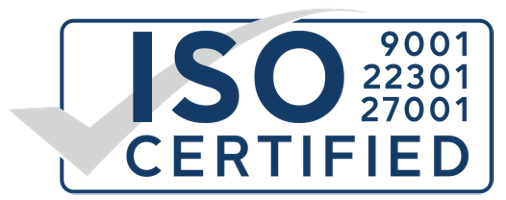ISO certification in clinical trials
Compliance with standards is a necessary part of doing business to operate, especially in the field of clinical trials, where the welfare of subjects comes first. We are careful to ensure that quality standards are met, which is why we believe it is essential to certify that they comply with global standards.
ISO is a non-governmental international organization that involves national standards bodies from 167 countries. It has been in operation since 1946. The best-known standard, ISO 9000, was introduced in 1987 and was the first standard to certify quality management.
Smooth Drag Development is certified to three ISO standards.
1. ISO 9001:2015 "Quality Management Systems" for all aspects of its business
ISO 9001 sets out the criteria for a management system. It can be used by any organisation, regardless of its field of activity or size of business. In fact, more than one million companies and organisations in over 170 countries are certified to ISO 9001.
This standard is based on several quality management principles, including customer focus, top management motivation and engagement, process approach and continuous improvement. Using ISO 9001 ensures that customers receive products and services of good quality, which in turn brings many business benefits.
2. ISO 27001:2013 "Information Security Management Systems"
This standard specifies the requirements for establishing, implementing, maintaining, and continually improving an information security management system in the context of an organization. This document also includes requirements for the assessment and handling of information security risks tailored to the needs of the organization. The requirements set out in this document are generic and are intended to apply to all organizations, regardless of type, size or nature.
3. ISO 22301:2019 "Business Continuity Management Systems"
ISO 22301 is applicable to all organizations, regardless of size, industry, or nature of business. It is also relevant to certification and regulatory bodies as it allows them to assess an organization’s ability to meet legal or regulatory requirements.
This standard confirms that a company has all the necessary resources and processes in place to maintain a sustainable business and meet all customer obligations, regardless of external factors such as natural disasters, cyber-attacks, IT failures, supply chain problems or loss of skilled personnel.
